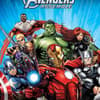Podcast
Questions and Answers
What does tachyphylaxis refer to in pharmacology?
What does tachyphylaxis refer to in pharmacology?
- The development of drug dependency
- A gradual increase in drug effectiveness over time
- A sudden decrease in response to a drug after its administration (correct)
- An allergic reaction to medication
What happens to drug response as the dose of ephedrine is increased?
What happens to drug response as the dose of ephedrine is increased?
- Response initially increases and then levels off (correct)
- Response increases without any plateau
- Response continuously decreases with higher doses
- Response becomes unpredictable with unpredictably higher doses
Which of the following best describes the effect of ephedrine on hypotension?
Which of the following best describes the effect of ephedrine on hypotension?
- It has no effect on blood pressure
- It increases blood pressure (correct)
- It decreases heart rate significantly
- It causes hypertension regardless of dosage
What might be a possible way to restore a drug's original response after tachyphylaxis occurs?
What might be a possible way to restore a drug's original response after tachyphylaxis occurs?
Tachyphylaxis can develop after how many doses of a drug?
Tachyphylaxis can develop after how many doses of a drug?
Which of the following is considered a character of muscarinic receptor antagonists?
Which of the following is considered a character of muscarinic receptor antagonists?
What type of cholinergic drug is atropine classified as?
What type of cholinergic drug is atropine classified as?
Which statement accurately describes the effect of hyoscine bromide?
Which statement accurately describes the effect of hyoscine bromide?
Which of the following drugs is a semi-synthetic muscarinic antagonist?
Which of the following drugs is a semi-synthetic muscarinic antagonist?
Which type of receptor do neuromuscular blockers primarily target?
Which type of receptor do neuromuscular blockers primarily target?
What type of drug is tiotropium classified as?
What type of drug is tiotropium classified as?
What is one of the main differences between direct and indirect cholinomimetics?
What is one of the main differences between direct and indirect cholinomimetics?
Which of the following is a common characteristic of all alkaloid cholinergic drugs?
Which of the following is a common characteristic of all alkaloid cholinergic drugs?
What is the primary use of atropine in emergency situations?
What is the primary use of atropine in emergency situations?
Which muscarinic receptor does atropine primarily block to cause mydriasis?
Which muscarinic receptor does atropine primarily block to cause mydriasis?
What is the duration of mydriasis when using atropine?
What is the duration of mydriasis when using atropine?
In which scenario is atropine contraindicated?
In which scenario is atropine contraindicated?
Which of the following statements about atropine sulphate is false?
Which of the following statements about atropine sulphate is false?
What side effect does atropine mitigate during general anesthesia?
What side effect does atropine mitigate during general anesthesia?
Which of the following is true about general anesthetics and atropine?
Which of the following is true about general anesthetics and atropine?
Which of the following is NOT a therapeutic use of atropine?
Which of the following is NOT a therapeutic use of atropine?
Which adrenergic drug is suitable for patients with hypotension?
Which adrenergic drug is suitable for patients with hypotension?
Which statement regarding norepinephrine is true?
Which statement regarding norepinephrine is true?
What characterizes beta blockers?
What characterizes beta blockers?
Which of the following is not true about epinephrine?
Which of the following is not true about epinephrine?
Which type of drug is norepinephrine classified as?
Which type of drug is norepinephrine classified as?
Which of the following is a beta-2 agonist used for bronchodilation in asthma treatment?
Which of the following is a beta-2 agonist used for bronchodilation in asthma treatment?
What is the primary use of alpha-1 selective agonists in clinical practice?
What is the primary use of alpha-1 selective agonists in clinical practice?
Which substance is known as a non-selective alpha agonist used as a vasopressor?
Which substance is known as a non-selective alpha agonist used as a vasopressor?
In treating hypertension, which class of drug would likely not be beneficial?
In treating hypertension, which class of drug would likely not be beneficial?
Which of the following drugs would have no beta-2 activity but possess alpha-1 activity?
Which of the following drugs would have no beta-2 activity but possess alpha-1 activity?
Which drug is primarily classified for its role in antihypertensive medication?
Which drug is primarily classified for its role in antihypertensive medication?
Which of the following is used primarily as a nasal decongestant?
Which of the following is used primarily as a nasal decongestant?
Which vasopressor would be a poor choice for treating bronchial asthma due to its activity profile?
Which vasopressor would be a poor choice for treating bronchial asthma due to its activity profile?
Flashcards are hidden until you start studying
Study Notes
Cholinergic Drugs
- Cholinergic drugs can be classified by their mechanism of action, solubility, and receptor target.
- Direct acting cholinergic drugs bind to muscarinic or nicotinic receptors.
- Indirect acting cholinergic drugs increase the availability of acetylcholine at the synapse.
- Lipid-soluble drugs can cross the blood-brain barrier.
- Lipid-insoluble drugs cannot cross the blood-brain barrier.
Cholinergic Antagonists
- Cholinergic antagonists block the action of acetylcholine.
- Muscarinic antagonists block muscarinic receptors.
- Nicotinic antagonists block nicotinic receptors.
- Muscarinic antagonists can be natural, semi-synthetic, or synthetic.
- Common muscarinic antagonists include atropine, scopolamine, and ipratropium bromide.
Atropine
- Atropine is a non-selective muscarinic antagonist.
- Atropine is used to treat bradycardia, organophosphate poisoning, and as a pre-anesthetic medication.
- Atropine can also be used to dilate the pupils.
Atropine in Motion Sickness
- Atropine can be used as a treatment for motion sickness.
- Hyoscine, another muscarinic antagonist, is also used for motion sickness.
- Hyoscine is more potent in the eyes than atropine.
- Hyoscine is available as a transdermal patch.
Ephedrine
- Ephedrine is an indirect acting sympathomimetic.
- Ephedrine can cause tachyphylaxis, meaning the body becomes less responsive to the drug after repeated administration.
- Ephedrine can be used as a decongestant and bronchodilator.
- Ephedrine is a mixed acting sympathomimetic.
- Ephedrine can be used to lower hypotension.
Vasopressors
- Vasopressors are drugs that constrict blood vessels.
- Vasopressors can be used to treat hypotension.
- Epinephrine and norepinephrine are non-selective alpha- and beta agonists.
- Norepinephrine is a better vasoconstrictor than epinephrine.
- Norepinephrine is not recommended for asthma patients.
- Dopamine works primarily on the beta-2 receptors, making it better than epinephrine when a broader effect is not needed.
- Xylometazoline and phenylephrine are alpha-1 selective agonists used as nasal decongestants.
- Clonidine is an alpha-2-selective agonist used as an antihypertensive.
Adrenergic Drugs
- Adrenergic drugs can be sympathomimetics or antagonists.
- Sympathomimetics mimic the effects of the sympathetic nervous system.
- Adrenergic antagonists block the effects of the sympathetic nervous system.
- Beta-blockers are adrenergic antagonists.
- Beta-blockers are used to treat anxiety, hypertension, and other conditions.
- Some beta-blockers have additional properties, such as blocking sodium channels, that make them more effective for specific conditions.
Studying That Suits You
Use AI to generate personalized quizzes and flashcards to suit your learning preferences.





